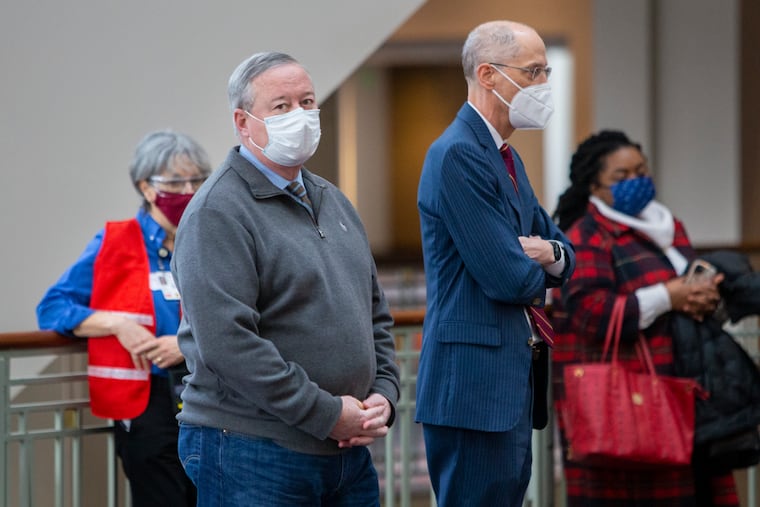City Council moves to add transparency and oversight to vaccine partnerships after Philly Fighting COVID scandal
Legislation advanced Friday would require Mayor Jim Kenney's administration to notify City Council of new vaccine contracts and release more details and data about vaccine providers to the public.

A Philadelphia City Council committee advanced legislation Friday that would add oversight and transparency to the city’s vaccination process.
The Public Health and Human Services Committee voted unanimously to advance the bill, which has the support of Mayor Jim Kenney’s administration, to the full Council for final passage.
The legislation, introduced this month amid fallout over Philly Fighting COVID, the self-described group of “college kids” that ran a mass vaccination site at the Pennsylvania Convention Center, would require Kenney to report to Council when his administration enters into a new vaccination contract and publicly release data and details every two weeks about every vaccine provider operating in the city.
The measure’s consideration comes as the city prepares to give out funding for groups to run vaccination sites. The city canceled a prior request for proposals amid the Philly Fighting COVID scandal, after records obtained by The Inquirer showed the deputy health commissioner had given the group an unfair advantage in the bidding process. The deputy commissioner resigned, and the city posted a revised request for proposals last week.
Health Commissioner Thomas Farley said Friday that seven proposals have already been submitted.
Under the bill advanced Friday, the Kenney administration would need to determine “in writing that the applicant receiving an award has the requisite experience to fulfill the mission of the contract.” The administration would also need to notify Council about a new contract’s details within two days after finalizing it.
The obligation to notify Council of contracts would apply only to groups that receive funding for vaccination sites. To date, the city has distributed vaccine doses to hospitals, pharmacies, community health centers, and other groups. But no funding has been provided to those groups and they have no formal contracts with the city.
Philly Fighting COVID received $194,000 from the city through a contract for coronavirus testing — a move that has since been criticized, especially by groups and activists pushing for racial equity in the city’s pandemic response.
The Kenney administration still has the authority to review proposals and award contracts for vaccination funding. But Council members said they hoped the legislation, which could be passed as soon as early March, would offer additional accountability and oversight.
The bill also requires the administration to post details about every vaccine provider on its website every two weeks, listing how many doses the city provided to each group, how many doses were distributed, and data about the race, gender, and age of recipients.
The mayor and Council pointed fingers at each other over the Philly Fighting COVID scandal as it drew embarrassing headlines. Councilmember Cindy Bass, chair of the committee on public health and human services, said Friday that she was working to move past that.
But Council members still questioned Farley for more than an hour about the details of vaccine distribution and their concerns about vaccination sites, racial equity, appointment scheduling, eligibility, and plans for a federal vaccination site at the Convention Center — which the administration chose as a site despite calls from Council to use Lincoln Financial Field.
“We’re just trying to reassure citizens,” Bass said. “But the process is still so very confusing that it leaves a lot of people with a lot of anxiety when it comes to trusting us that we know what we’re doing, that we’re getting it right, that we’re putting out accurate information.”